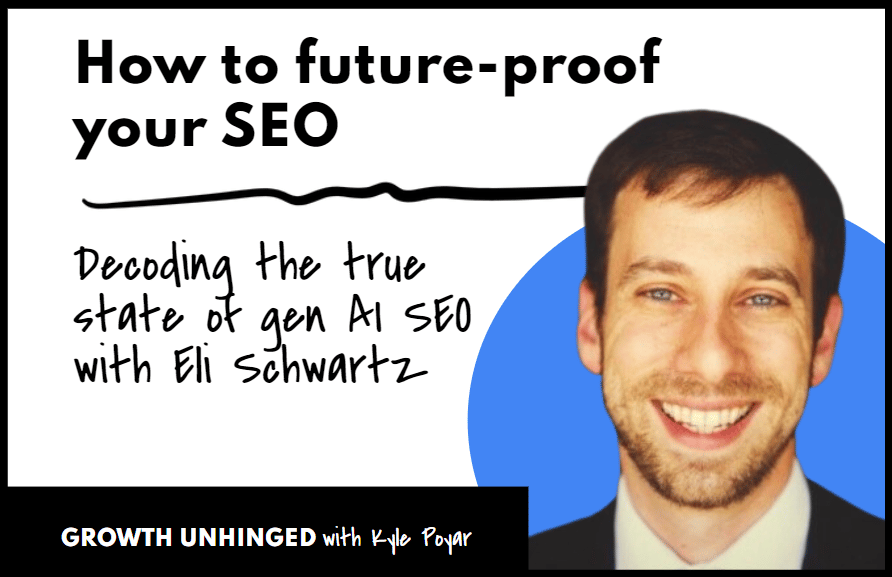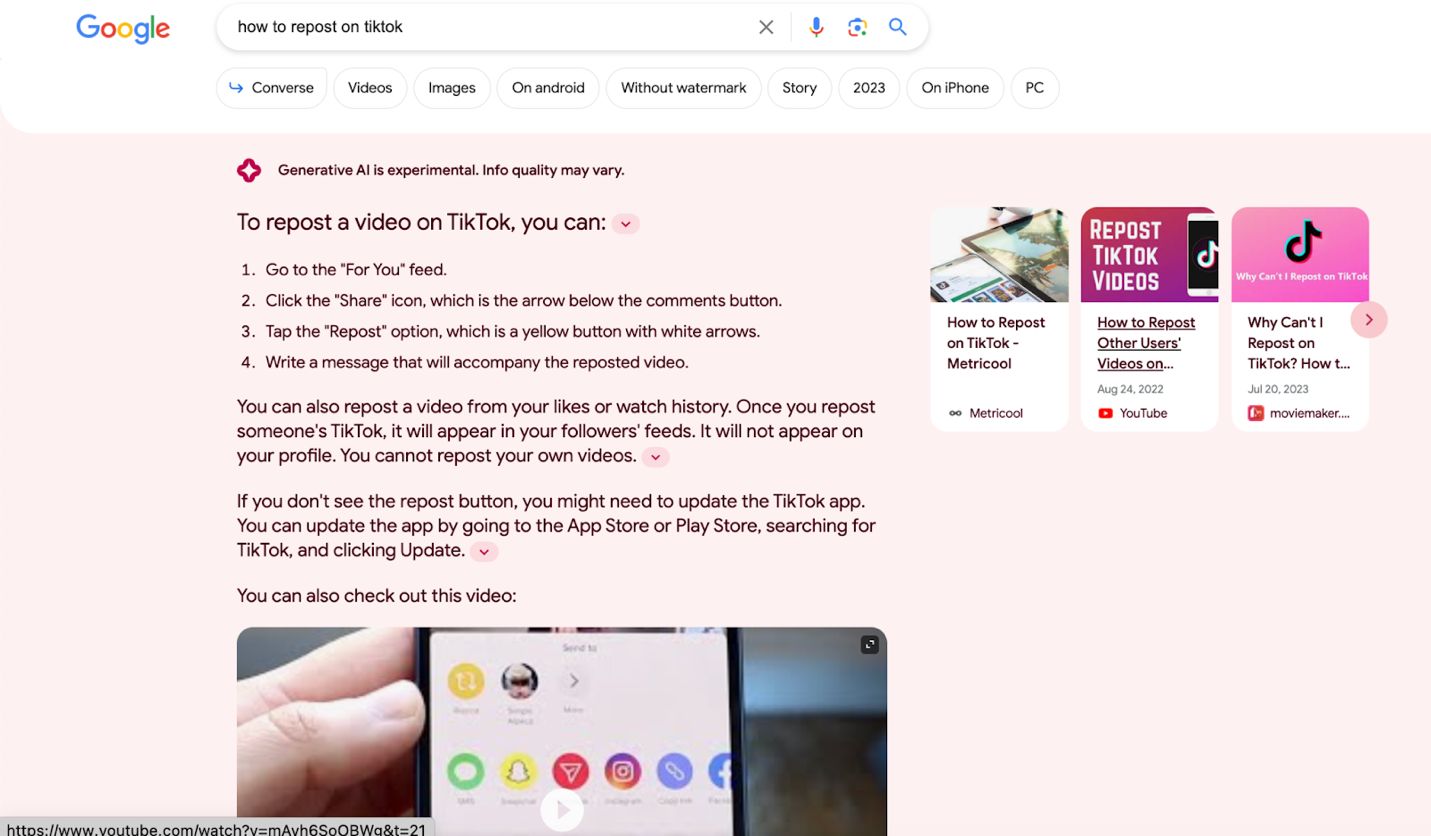👋 Hi, it’s Kyle. Welcome to another edition of Growth Unhinged, my newsletter that explores the unexpected behind the fastest-growing startups.Today I’m sharing SEO expert Eli Schwartz’s perspectives on this brave new world of generative AI and what Eli thinks it means for SEO. This isn’t one of those AI puff pieces; it’s a studied take on what’s happening to this important acquisition channel and how to prepare yourself. Spoiler: SEO isn’t over yet. (This piece may be too long for email; read the full version here.)
Eli Schwartz literally wrote the book on scaling organic acquisition of PLG products – Product-Led SEO – and he helps companies like Tinder, Coinbase, and Wordpress use SEO to unlock billions in revenue. But before all that, from 2012 to 2019, he headed up global SEO at SurveyMonkey, where he launched the company’s very first SEO programs – an incredibly lucrative initiative that drove two-thirds of the company’s global revenue.
I chatted with Eli recently about what generative AI (gen AI) means for SEO. Eli shares his insights on the current health of SEO, explains the massive impact he expects Google’s gen-AI powered search – Google Search Generative Experience (aka “SGE”) – to have on SEO and offers up his advice on what you can do to win at SEO in 2024.Here’s Eli, in his own words.

SEO isn’t dying – but it is morphing into something brand-new.
I don’t think SEO could ever possibly, truly die as long as people need to find and fetch information online from external sources.
But let’s face it. SEO as it exists today isn’t a great channel for users. There’s too much noise, too many companies created solely for SEO purposes. Search for “best credit cards,” for example – you’ll see most of the results are content sites that make money from affiliates. It's not a great experience, but it’s how SEO works right now.
So I believe SEO is going to be reborn. Gen AI will absolutely change what SEO means. Gen AI will make a lot of last year's SEO best practices obsolete. And gen AI will shift the focus of future SEO efforts to an entirely different place in the user's journey.
Take Google’s featured snippets – those extended search results that appear at the top of Google. They give users a quick answer to their question right in the search results by extracting information from a web page that’s already written.

But Google SGE – or ChatGPT or whatever comes next – on the other hand, will write the content it presents to users on-the-fly, after it extracts and analyzes all the information it can find related to the question asked.
You can already see the experimental version of SGE on Google right now, and it’s pretty compelling.

With the new way that gen AI SEO works, links and backlinks and domain authority won’t matter much anymore. But content – the richness of the content, how that content is laid out, etc. – will.
And that means how you use keywords within content and how you structure content will change. Whether you use synonyms, plurals, the foreign-language versions of words – all of that will change, too.
We're going to move into this new, gen AI search world where, for example, you’ll just be able to ask “what are the best credit cards?” and Google will tell you, based on its large language model (LLM), which five credit cards are the best ones for you – and it's not unlikely that Google will even personalize its suggestions. You won’t have to actually go to the credit card websites to extrapolate the answer.
“You’re gonna need a bigger boat.”
Subscribe to Kyle Poyar's Growth Unhinged to read the rest.
Become a paying subscriber of Growth Unhinged to get access to this post and other subscriber-only content.
UpgradeA paid subscription gets you:
- Full archive
- Subscriber-only bonus posts
- Full Growth Unhinged resources library

